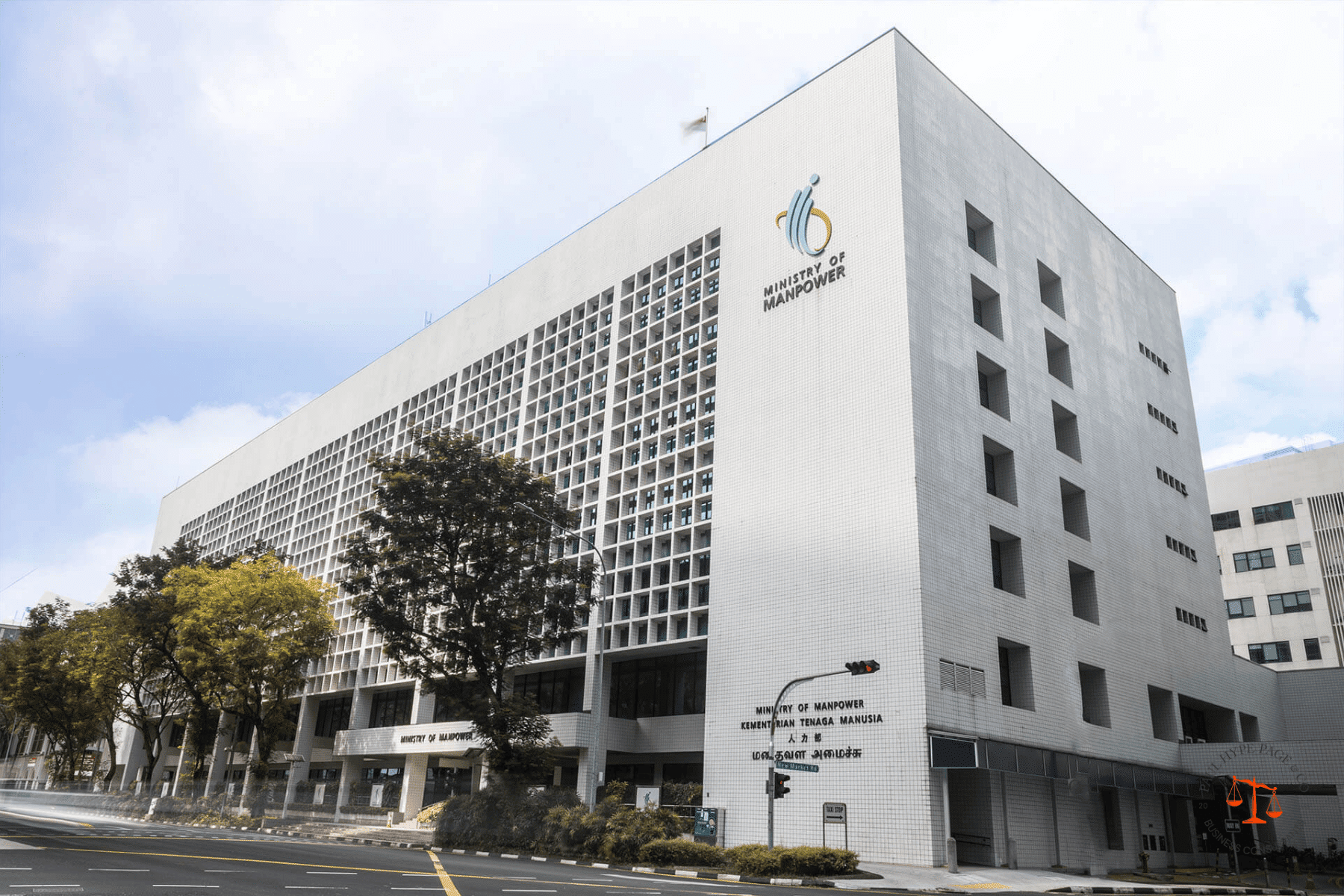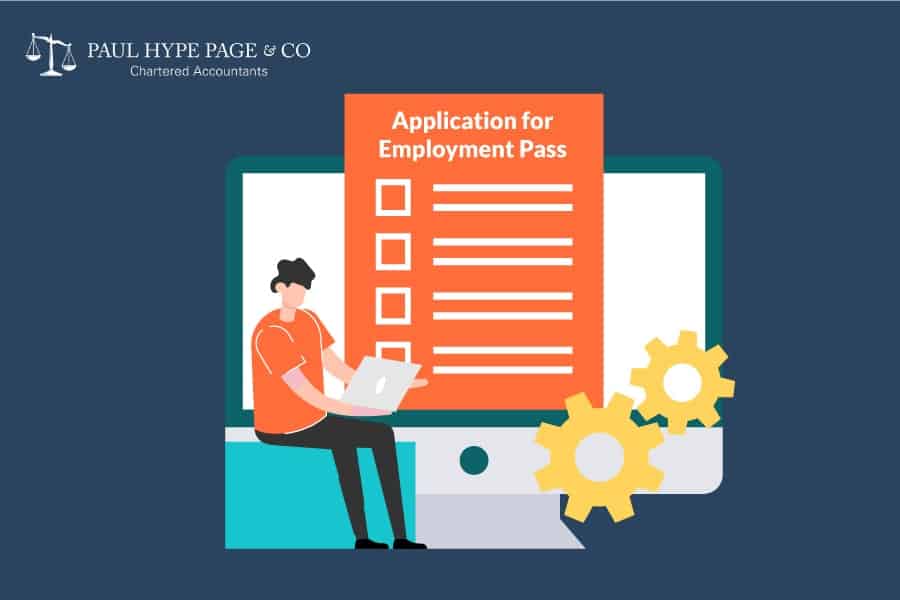Outline
- 1. The Tightened Fair Consideration Framework (FCF)
- 2. Special Appeals May Be Required for New or Unusual Job Roles
- 3. Issues with the company background provided
- 4. Candidate not matching the job profile
- 5. Low score in COMPASS
- 6. Foreign Worker Quota Is Limited
- Reasons for rejection
- Tips to get your EP accepted
- FAQs
Singapore stands as a premier global destination, renowned for its lucrative opportunities for career advancement and business ventures. As Asia’s largest business hub, it attracts talents worldwide seeking to establish themselves professionally and personally. However, legal employment necessitates obtaining a valid work visa, ensuring seamless work authorization.
Managers, executives, specialists, and other skilled professionals typically obtain an Employment Pass (EP). The process, regulated by the Ministry of Manpower, can be challenging. Here are the hurdles companies encounter when applying for an EP or getting a renewal approved.
1. The Tightened Fair Consideration Framework (FCF)
Implemented in 2014, the Fair Consideration Framework (FCF) prevents discrimination in hiring based on age, gender, nationality, or race in Singapore. It aims for fair treatment, preventing favoritism towards foreign talents over locals. However, in June 2021, the FCF underwent significant tightening, likely indicating stricter enforcement or adjustments to reinforce its objectives.
With this, companies intending to hire foreign employees are required to advertise job positions on MyCareersFuture, a government-run job portal. The job advertisement must remain active for a minimum of 14 consecutive days. This requirement applies to all companies with 10 or more employees and for all positions with a monthly salary below S$20,000. By mandating this step, the Singaporean government aims to ensure that local talent is given fair consideration for job opportunities before foreign candidates are hired.
Companies found in violation may face a ban on applying for new passes or renewing existing EPs for up to 24 months. MOM also penalizes employers making false declarations with fines up to $S20,000 or imprisonment up to 2 years or both.
2. Special Appeals May Be Required for New or Unusual Job Roles
Before an individual is hired, MOM would look at their educational background and experiences in relation to the role applied. This is straightforward for common roles like accountants, IT professionals, procurement officers and other similar roles.
However, if your business has new or unusual roles which require special talents, their paper qualifications would not be needed. The ministry prioritizes talent with the right skills, focusing on clear and detailed role explanations for easy comprehension. So for employees with special skill sets, approval for their Singapore work visa may be more complicated.
But, do take note that even with the right qualification, that does not mean an automatic approval of an application. MOM might ask for proof of your candidate’s previous projects or question their education qualification.
3. Issues with the company background provided
Based on the remarks provided, you may be able to determine the reasons for rejection. For instance, Singapore may deem your company’s business activities irrelevant to its economy, find a weak Singaporean core within your company, or consider your company’s industry irrelevant to Singapore.
In response, the MOM may request detailed information about the company’s business activities, manpower projection, and an explanation for why the candidate was chosen (emphasizing special skills unavailable locally).
4. Candidate not matching the job profile
The MOM may also reject an Employment Pass if the proposed salary, candidate’s educational qualification, or relevant work experience does not match the job position being applied for. Changing industries or job roles may be difficult for a foreigner unless they can demonstrate a transferable skillset. Furthermore, while the base minimum salary for an EP is S$5,000/month (for non-financial services sector), our experience indicates that candidates often require a higher monthly salary for their application to be approved.
5. Low score in COMPASS
According to the Ministry of Manpower (MOM), from September 2023, Candidates have to pass two stages of the Complementarity Assessment Framework (COMPASS) to get the employment pass. Getting a low score (below 40/120) on the assessment will lead to rejection
6. Foreign Worker Quota Is Limited
In Singapore, there are three main types of work passes:
- Employment Pass: For professionals and managers earning at least $S5,000 per month.
- S Pass: For mid-skilled workers earning at least $S3,000 per month.
- Work Permit: For unskilled labor workers.
In Singapore, there are restrictions on the number of each type of work pass based on your service sector. Furthermore, with the new COMPASS framework launching on September 1, 2023, there’s an unofficial quota on Employment Pass (EP) holders based on nationality, tied to employers’ diversity criteria.
While not a hard quota on specific nationalities, companies aiming to hire foreign talent via EPs need to plan their workforce carefully.
Reasons for rejection
The Ministry of Manpower has the right to reject an Employment Pass application or an Employment Pass renewal for one of the following reasons:
| Reason for Rejection | Explanation |
|---|---|
| Scope and qualifications mismatch | Your experience and educational profile must align with the job’s scope and requirements. |
| Insufficient information | Providing insufficient information required for validating Employment Pass applications may lead to rejection. |
| Oversaturated job market | A company will prioritize local and experienced workers, and if there are enough local residents to fill the position, your application may get rejected. |
| Imbalanced ratio of locals to foreigners | If the employer has not hired enough local employees, your application may get rejected for lack of contribution to the Singaporean economy. |
| Discrepancies in information | Any discrepancies in the credentials or personal information provided in the Employment Pass application may lead to rejection. |
| Unreliable work records | If you have a questionable and unreliable work record, you may not get approved for an Employment Pass. |
| Earning less than the minimum salary | You must meet the minimum fixed monthly salary requirement to get approved for an Employment Pass. |
| Insufficient finances of the company | If the company does not have sufficient funds to cover the total staff costs for a year, your application may get rejected. |
Despite these challenges, professional service providers like Paul Hype Page & Co can offer guidance on hiring foreign talent. With their expertise, they can assist in navigating the EP application process seamlessly. Contact them today to learn more!
Tips to get your EP accepted
Expert Tips for a Successful EP Application
- Seek assistance from immigration experts or visa consultants to navigate MOM policies and industry research.
- Prepare a strong justification letter from your HR department explaining why you are the best candidate for the role.
- Submit an up-to-date LinkedIn profile, CV, and cover letter with all relevant qualifications and certifications to avoid delays.
Use experts
Immigration experts and visa consultants offer valuable insight into MOM’s policies. You may also research the industry to assess its economic value to Singapore.
Have a strong justification letter:
You’ll need to submit a strong justification letter detailing the necessity of your role and your unique skill set. Usually, your company’s HR department can draft this letter for you.
Ensure you have an updated CV/Cover Letter
Submitting a well written and up to date CV or Cover Letter will help strengthen your visa application. To avoid any delays in your application, ensure you submit all relevant educational certifications and qualifications, including grade/mark sheets if applicable.
FAQs
When an Employment Pass (EP) application gets rejected in Singapore, the applicant and their prospective employer will receive a rejection letter from the Ministry of Manpower (MOM) detailing the reasons for the rejection. The employer can reapply for an EP, but they must address the issues outlined in the rejection letter and provide additional information that can support the application.
The difficulty of getting an Employment Pass (EP) in Singapore depends on various factors such as the applicant’s qualifications, work experience, job role, and the employer’s reputation and financial stability.Generally, the Singapore government aims to attract foreign talent to fill skill gaps in the economy, and therefore, they have a relatively open policy for EP applications. However, to ensure that the EP system remains fair and competitive, the Ministry of Manpower (MOM) has set strict eligibility criteria and qualifying requirements for EP applicants.
The success rate for EP applications can vary depending on various factors such as the qualifications and experience of the applicant, the job role and industry, and the financial stability and reputation of the employer.
Generally, MOM takes about three to 8 weeks to process an EP application. However, in some cases, it may take longer than 8 weeks, especially if there are issues with the application that need further clarification or if additional documents are required.
Earning a salary oF at least $5,000, which is benchmarked against the top one-third of the local professionals, managers, executives and technicians ( PMET) salaries by age.
About The Author
Share This Story, Choose Your Platform!
Related Business Articles






